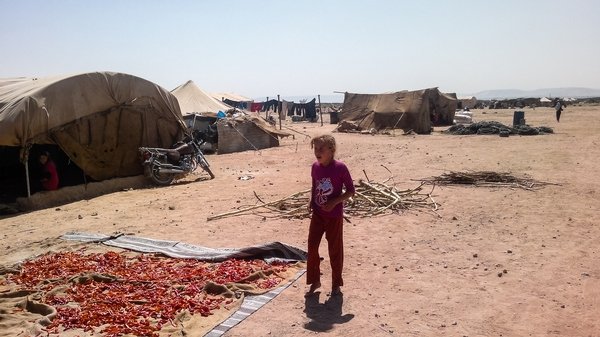Syria: Civilians forced to flee amidst heavy bombardments on Al Safira

Oct 29, 2013
130,000 people have fled the district of Al Safira, in Aleppo province, which has been under violent attack since 8th October. There is currently insufficient humanitarian aid to meet the massive, and growing, needs of these displaced people.
Fighting, shelling and aerial attacks have left 76 dead in the town of Al Safira. In the whole district, they have left 450 wounded in the space of five days, admitted to medical structures supported by MSF. And MSF’s hospital in the region has treated 34 wounded patients from Al Safira.
"These extremely violent attacks have pushed people who have already fled once into a new exodus," says Marie-Noëlle RODRIGUE, MSF Director of Operations. More than 130,000 people, almost all civilians from the city of Al Safira or from surrounding camps, where MSF provided assistance, have fled north. "They arrive in areas which are already packed with displaced people and where a few humanitarian organisations are faced with huge needs,” Marie-Noelle Rodrigue adds.
In the city of Manbij, volunteers from the Red Crescent had registered nearly 200,000 displaced people before this new influx. The reception capacities are saturated. Families are packed into public buildings, farms in the area… Buildings under construction without doors or windows are sheltering up to 10 families in one apartment. Other families have been installed in a hastily-built camp on a former parking lot, with just one latrine. All those who fled with nothing are now destitute and have to face a second winter of war.
Not only are civilians the direct victims of bombings, they also find themselves with very limited access to medical care as health facilities east of Aleppo city are targetted. On October 21, a barrel of TNT was dropped from a helicopter onto a field hospital in the town of Blat, rendering the hospital unusable. On September 10, Bab El field hospital was also bombarded. The attack left 11 dead and five wounded.
“The United Nations, as well as those countries with influence in the conflict, need to show the same determination to resolve the urgent aid issues as they have on the subject of chemical weapons, states Dr Mego TERZIAN, president of MSF. It’s vital that political and administrative obstacles to the provision of aid in areas not controlled by the government are lifted.”
MSF is striving to provide emergency assistance to people who have been wounded and displaced. But the emergency is also to mobilise other humanitarian actors. The aid provided to those populations living in extremely difficult conditions is too little.
MSF teams made up of international and Syrian staff operate six hospitals and two health centers in the north of Syria. Between June 2012 and September 2013, MSF teams in Syria carried out 90,175 medical consultations and 4,491 surgical procedures and assisted 1,426 births.





Leave a Comment